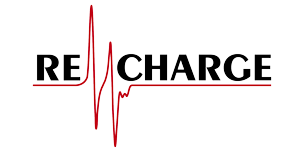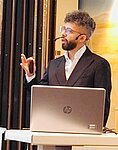Curriculum
The curriculum of the IMPRS tries to foster the abilities of the students to work on scientific problems independently. The measures to achieve this goal combine basic courses, advanced courses, progress meetings, courses on additional skills, research seminars and the participation in conferences and workshops. Furthermore practical exercises on state-of-the-art lab experiments and computer codes are combined with introductory tutorials.
We expect our students to follow and comply with the 'Rules of Good Scientific Practice'.
| 1st Year | 2nd Year | 3rd Year | Final Oral Presentation | |
| Block Courses | Course I | Course II | Course III | |
| Summer School | ||||
| Organized by Student Teams | International Conference | |||
| Retreats | ||||
| Supervision | Thesis Advisory Committee (TAC I) | TAC II | TAC III | |
| Discussion Meeting | Discussion Meeting | Discussion Meeting | ||
| Soft Skills Training | Course I | Course II | Course III | |
Types of courses and lectures
Block Courses: Block courses are direct lecturing activities that impart the necessary background knowledge on theoretical methods, physical background of spectroscopy and some basic insight into the related chemistry of catalysts and reactions.
Summer Schools: The summer schools entitled ‘Theoretical and spectroscopic methods in Inorganic Chemistry’ (TSMI) and ‘Catalysis and Energy: from Synthesis to Application’ (CESA) are carried out in a biannual rhythm. These summer schools can consist of basic lectures, special interest lectures, practical work, data analysis, discussion groups and poster sessions.
International Conference: A highlight of the IMPRS-RECHARGE curriculum is the international scientific symposia series that is regularily organized by groups of doctoral/PhD students. The students have the unique possibility to independantly develop and perform a conference program including topic selection and invitation of experts.
Retreat: Retreats offer exciting opportunities for students to discuss scientific topics, to share overarching research interests, and as well to use the provided platform for best-practice-exchange.
Discussion Meeting: Discussion meetings provide an informal opportunity for the students to present and discuss recent research results, to meet-up with new students and to organize coming activities. Regular talks in front of their peers, the students exercise and improve their presentation skills and obtain critical feedback on their scientific work.
Thesis Advisory Committee: The Thesis Advisory Committee (TAC) is responsible for monitoring progress and development of the doctoral/PhD student and to to give advice. The TAC consists of the direct supervisor and two (or more) expert scientists of the students research area. One of them must be external (i.e. from a different research institution). By default, TAC and student meet once a year.
Softs Skills Courses: The IMPRS offers workshops on various topics to improving the soft skills of its students e.g. presentation skills, scientific writing, scientific posters, project management or career planning.
Final Oral Presentations: Upon completion of all obligatory courses, doctoral/PhD students are supposed to deliver a final oral presentation with discussion about a specific topic derived from the curriculum.



